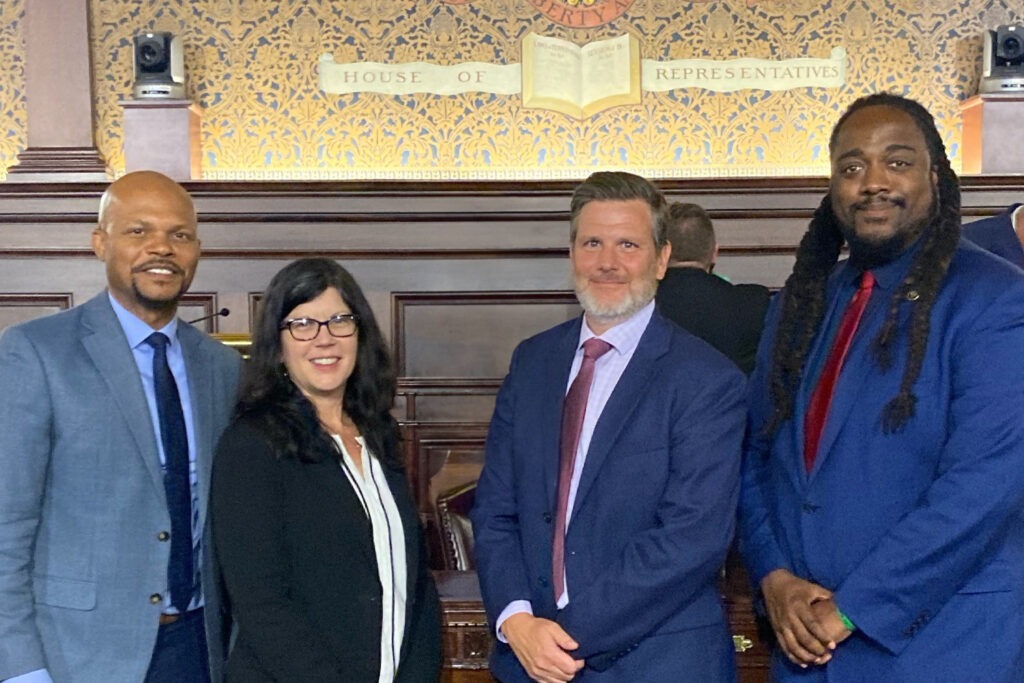
SDoL superintendent Dr. Keith Miles, assistant superintendent Matt Przywara, and ESL teacher Kristen Haase testified Thursday before the House Education Committee on the critical importance of Level Up funding to sustaining the district’s operations and providing students across Pennsylvania equitable opportunities for success.
Their testimonies are shared below.
Dr. Keith Miles, superintendent
Good afternoon Mr. Chairman and members of the committee. My name is Dr. Keith Miles, and I am the superintendent of the School District of Lancaster.
Our school district was one of six school districts, seven parents, the Pennsylvania Association of Rural and Small Schools and the NAACP Pennsylvania State Conference to win a historic victory in Commonwealth Court, when a judge ruled that Pennsylvania’s school funding system is unconstitutional and harms school districts with the most need.
Districts like ours.
About 90 percent of our students come from economically disadvantaged families, which research shows has an enormous impact on school readiness. Approximately one in five of our students speaks a language other than English, which is more than seven times the average of the other districts in our county.
As a district, we are committed to closing these gaps, as we believe every child deserves an excellent education. And we recognize that the cycle of poverty perpetuated by inadequate education creates a financial burden on taxpayers that grows over time.
But it takes resources, often in the form of skilled professionals, to do this work. Our district spends $6.5 million on early childhood education to close school readiness gaps, $3 million on extended day, after school and summer programs to close learning gaps, $3 million on social work and community schools to support our students and families who are under-resourced, and nearly $3 million on college and career supports, including school-to-work programs and college advising to close postsecondary gaps.
We spend $11.5 million annually on our programs for English Language Learners, more than the entire basic education funding subsidy for ten of our neighboring school districts in Lancaster County.
These investments, which together total more than $20 million, are essential, in high demand, and in some cases insufficient.
Yet we have been chronically underfunded—by tens of millions of dollars over the past decade—according to the Legislature’s own formula for school district need.
We are reaching the upper limit of our local taxing capacity, and our tax base has not grown meaningfully over the past 15-20 years.
Only Level Up funding—a critical $6 million over the past two years—has made a difference. For us to sustain and grow this unique and critical work with our students, we need that continued support.
We call on the legislature to once again appropriate Level Up resources to the neediest school districts to help address the worst inequities in our school funding system.
Thank you.
Matt Przywara, assistant superintendent
Hello. My name is Matt Przywara, and I am the assistant superintendent at the School District of Lancaster. Among my responsibilities is the oversight of finance and operations, as I was previously the CFO in the district for 16 years.
Today I want to illustrate our annual struggle with a structural deficit caused by expenses that rise faster than our tax base can keep pace, causing disproportionately high real estate tax rates which is exacerbated by the inadequate funding from the state.
Our expenses continue to rise in the form of human capital resources. We are a service driven organization that relies on the many talents of our educators and support staff in our schools. Our students are in need of far greater services then that of our neighboring peers and that is why we need to invest more each year into our people and programs at the local level. We are a transparent and value driven organization that is very mindful of any additional burden we place on our local community for taxes. We are outpaced on the amenities our close peers have such as state of the art facilities, instructional resources and athletic fields all of which are critical to an educational experience our students should expect to compete for opportunities for college and career.
Our local tax revenue is largely static. Our district is landlocked, with a dwindling amount of space to add new development that would grow our tax base. At the same time, more than a quarter of a billion dollars in property value in our district—30 percent of all properties—are taxexempt, including hospitals, colleges, churches, and economic development projects. Though we receive voluntary payments from some of these owners, it is tens of millions of dollars less than their full property-tax bills would be.
The upshot of all of this is a disproportionately high millage rate for our homeowners that raises far less revenue than lower rates in more affluent districts.
For example, in 2021-22 the New Hope-Solebury School District, on the New Jersey border near Doylestown with just over 1,300 students, has a local tax rate that generates more than $30,141 in local revenue per student. When you add in the district’s BEF per student of $990 per student they generate more than $31,000 in combined state and local revenue per student.
By comparison, in the School District of Lancaster, our tax rate only generates $9,611 per student from our local revenue. With the additional state funding (including Level Up) of $6,500 per student, we are only able to generate a combined total of $16,000 per student. The disparities in this example are one of many when you compare the importance of adequate funding for schools in the Commonwealth.
As my colleague Dr. Miles noted early, nearly 90% of our students are economically disadvantaged, and one in five students, or nearly 2,000, speak a language other than English.
In New Hope School District, 10% of students are economically disadvantaged. About 25 kids speak a language other than English. Only through funding mechanisms like Level Up can we provide our students the resources they need to access the education they deserve.
The significance of Level Up Funding transcends improved infrastructure and enhanced academic experiences. It addresses a deeply rooted issue of equity, aiming to counteract the cycle of disadvantage that has perpetuated for far too long. By channeling additional resources and making them sustainable to districts like ours, the initiative acknowledges that every child, regardless of their ZIP code or background, deserves an equal chance at success. This not only benefits the students directly but has a ripple effect that reaches families, communities, and the Commonwealth at large.
Thank you.
Kristen Haase, ESL Teacher
Thank you, Chair Schweyer and Chair Topper, for holding this important hearing and inviting me. My name is Kristen Haase, and I teach English Language Development to multilingual learners of Carter & MacRae Elementary in the School District of Lancaster. I am also a Senior Policy Fellow with Teach Plus.
I have been a part of the district for over 20 years, but I live just five miles away in Manheim Township, where my son is a rising ninth grader. The disparities in education funding across these two districts has opened my eyes to the need for Level Up, which levels the playing field between underfunded and affluent districts.
Manheim Township is a wealthy community with a new $43.6 million middle school with a black box theater, Smartboards in every classroom, and a TV projection room with tens of thousands of dollars of equipment. Everything about my son’s educational environment and experience signals to him, “You matter. Your future matters. Your dreams matter. Your education is important and worth investing in.”
In my district, we have to budget and save for every repair. There are buildings without air conditioning and overcrowded schools that use trailers. When I started my career, my classroom was a maintenance closet, and even today, two of my colleagues teach in the library and the other two of us share a classroom because space is so limited.
These inequities seem unfair even if our districts were serving similar populations. However, in my district, we serve a much higher percentage of students living in poverty, students with disabilities, and English language learners. This is not coincidental: Level Up districts are only 20% of all PA districts but serve over half of the state’s economically disadvantaged students and English language learners. The students with the greatest needs are disproportionately concentrated in Level Up districts with the fewest resources relative to student need.
The research is clear: my students can be successful, but they require additional resources to help them succeed. If you have learned a second language you know this. Without enough staff to provide support, my students, who are smart and eager to learn, will not be able to access the curriculum to learn the other critical academic skills they need to succeed. Underfunding is a huge factor in Pennsylvania’s teacher shortage: research makes clear that poor and underfunded districts are the ones experiencing the greatest shortages, the highest percentages of emergency-certified and underprepared teachers, and the highest teacher attrition rates.
The students and staff of the School District of Lancaster are capable, but they need resources–time, money, and personnel–to be successful. It breaks my heart that $100 million of Level Up funding that was already appropriated and approved with bipartisan support in both chambers is now in jeopardy. I call on leaders and members in the House and Senate to stop playing politics with my students’ futures and release the Level Up funds to create a level playing field for all students in Pennsylvania. Please send my students the same message my son receives: “You matter. Your future matters. Your dreams matter. Your education is important and worth investing in.”
Thank you.
